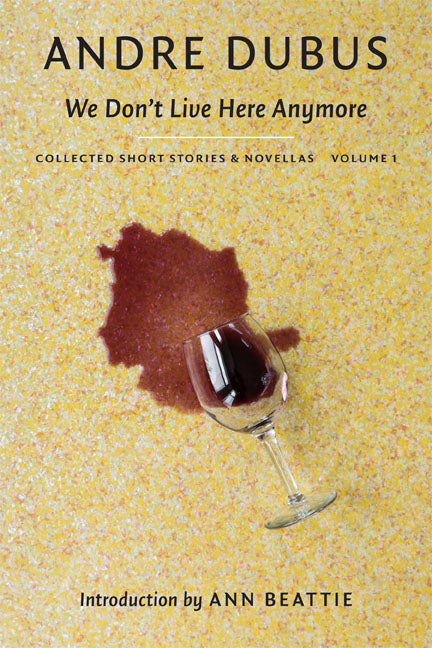
See the complete collection at $36.95 of the three-volume Andre Dubus Collected Short Stories and Novellas.
In the early 1970s, literary journals that contained Andre Dubus's short stories were passed around amongst admiring readers. When his debut collection Separate Flights arrived in 1975, it was immediately celebrated. "Dubus is the sort of writer who instructs the heart, and he ought to be discovered by any number of readers," wrote The Atlantic Monthly. The collection won the Boston Globe's Laurence L. & Thomas Winship/PEN New England Award. The collection includes the novella "We Don't Live Here Anymore," which served as the basis for the 2004 film of the same title (nominated for the Grand Jury Prize at the Sundance Film Festival); the novella also introduces Dubus's writer-protagonist Hank Allison, a character who continues to appear throughout his work. Two years later, the title story of Dubus's sophomore collection Adultery and Other Choices continued the exploits of Hank Allison. "The title story alone will make it worth your while to go out and get the book," wrote the New York Times Book Review. While the collection's opening stories focus on the fragile nature of youth, later stories shift to darker struggles of adulthood, such as in "Andromache"—Dubus's first story to appear in The New Yorker (1968)—which traces the aftermath of a tragic death during wartime.
Praise for Andre Dubus
The short story never rested in more honest hands that when Dubus wrote it. —Finnegan Schick, The New Criterion
Andre Dubus, one of the 20th century's most gifted short story writers...like Raymond Carver, became a master of the form... —The New York Times
A welcome gathering of work by a writer always worth reading. —Kirkus Reviews
The solidly yet intricately constructed short stories and novellas of Dubus vibrate with provocative intensity of place, predicament, thought and feeling. Each is an intimate, unnerving dream of the everyday conflicts between dream and reality, spirit and desire. —Booklist, Starred Review
...the three volumes reaffirm Dubus’s status as a master, as an unparalleled excavator of the heart and its pains, its longings, its errors, its thumping against the constant threat of grief, despair, and loneliness. —Nina MacLaughlin, The Paris Review
...the language of [Dubus's] stories is at the service of something outside itself ... often we forget we are reading sentences but are put rather into more direct connection with the character’s thoughts and feelings. —William Pritchard, The Boston Globe


